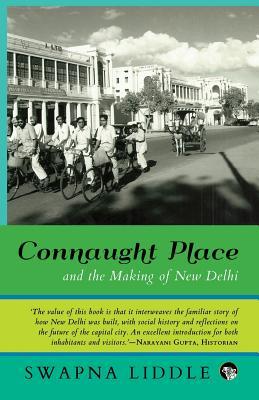New Delhi was the grandest planned capital city of the British empire. In its meticulous urban plan it owed as much to earlier imperial traditions of Delhi as it did to Western movements such as the Garden City and City Beautiful. It is interesting to examine the process by which this plan came into being, and the interactions between the people responsible for it. This new city also became the centre of a culture at the cusp of Indian and British Indian society - centering on the shopping precinct of Connaught Place, restaurants, clubs, cinema theatres and other institutions. In the years immediately following independence and partition, came a sudden expansion of the metropolis beyond the limits of New Delhi. This left the original New Delhi as a predominantly administrative centre, with a low density of population, and an oasis of green. Far from being a sterile space however, its many cultural institutions, public spaces and thriving shopping precincts have given it a persisting vibrancy.

New Delhi was the grandest planned capital city of the British empire. In its meticulous urban plan it owed as much to earlier imperial traditions of Delhi as it did to Western movements such as the Garden City and City Beautiful. It is interesting to examine the process by which this plan came into being, and the interactions between the people responsible for it. This new city also became the centre of a culture at the cusp of Indian and British Indian society - centering on the shopping precinct of Connaught Place, restaurants, clubs, cinema theatres and other institutions. In the years immediately following independence and partition, came a sudden expansion of the metropolis beyond the limits of New Delhi. This left the original New Delhi as a predominantly administrative centre, with a low density of population, and an oasis of green. Far from being a sterile space however, its many cultural institutions, public spaces and thriving shopping precincts have given it a persisting vibrancy.